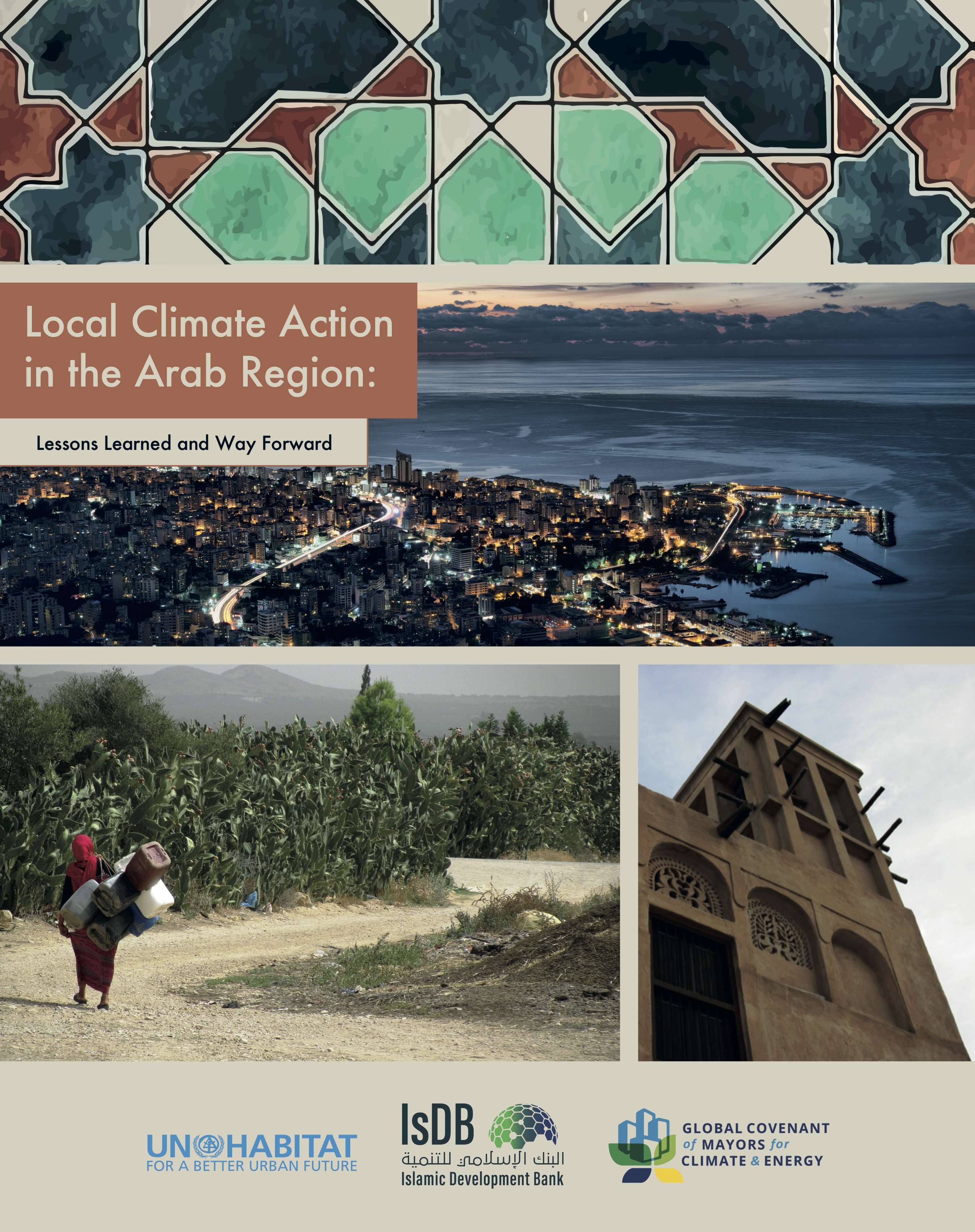Dubai, 21 October, 2019 - UN-Habitat, in collaboration with its partners recently launched the report titled “Local Climate Action in the Arab Region: Lessons Learned and Way Forward”. The launch took place during the “Sustainable Buildings Day towards the achievement of Paris Agreement” event, organized by the Ministry of Infrastructure Development in UAE, UN Environment and the Global Alliance for Building and Construction.
The partners taking part in the report launch were the Islamic Development Bank, IsDB, the Global Covenant of Mayors for Climate and Energy, the Center for Environment and Development for the Arab Region and Europe (CEDARE), Acting for Climate in South Mediterranean (Clima Med) and The Regional Center for Renewable Energy and Energy Efficiency (RCREEE).
The report was developed with funding from the Global Covenant of Mayors for Climate and Energy and the Islamic Development Bank; in partnership with Clima-Med, CEDARE, and RCREEE. It provides municipal and city authorities with a policy resource that can support their decision-making process while planning climate action at the local level.
The report comes at a time when climate change is becoming a major threat to humanity, with the Arab region one of the most vulnerable to its impacts. It sheds light on the impacts of climate change at the city level and provides guidance on improving climate governance and multilevel climate action.
A number of case studies on adaptation and mitigation from cities across the Arab region and the world are showcased, as well as opportunities to access climate finance at the city level and to boost public-private partnerships. The findings of the report constitute a set of policy recommendations for city leaders to guide their work towards achieving more sustainable and climate-resilient cities.

Mr. Erfan Ali, Director of UN-Habitat Regional Office for Arab States and Mr. Idrissa Dia, Advisor to the Vice President of the Islamic Development Bank, delivered keynote speeches at the event highlighting the impacts of climate change on Arab cities and the need for synergies and partnerships to address these challenges.
Ms. Mayar Sabet, Regional Programme Specialist at CEDARE provided an overview of the report and its findings, while Dr. Alexandra Papadopoulou a Clima-Med Energy Expert, focused on presenting the project’s approach, the role that local authorities can play through tailored capacity building, better coordination, and the importance of – ways to – developing Sustainable Energy Access and Climate Action Plans.
During this event, public and private stakeholders from the Arab Countries discussed with the policy makers means to adapt higher commitments and to develop Nationally Determined Contributions (NDC’s), specifically for the construction sector.
The report ‘’Local Climate Action in the Arab Region: Lessons learned and way forward” builds on the regional capacity-building workshop on climate adaptation and mitigation at the local level held in Beirut, Lebanon in February. With more than 40 participants from 10 countries in the region, the workshop discussed climate change impacts on human settlements; global, regional, national, and local frameworks for response; access to climate finance; and the development of Sustainable Energy Access and Climate Action Plans (SEACAPs).
Download the full report ‘’Local Climate Action in the Arab Region: Lessons learned and way forward”: